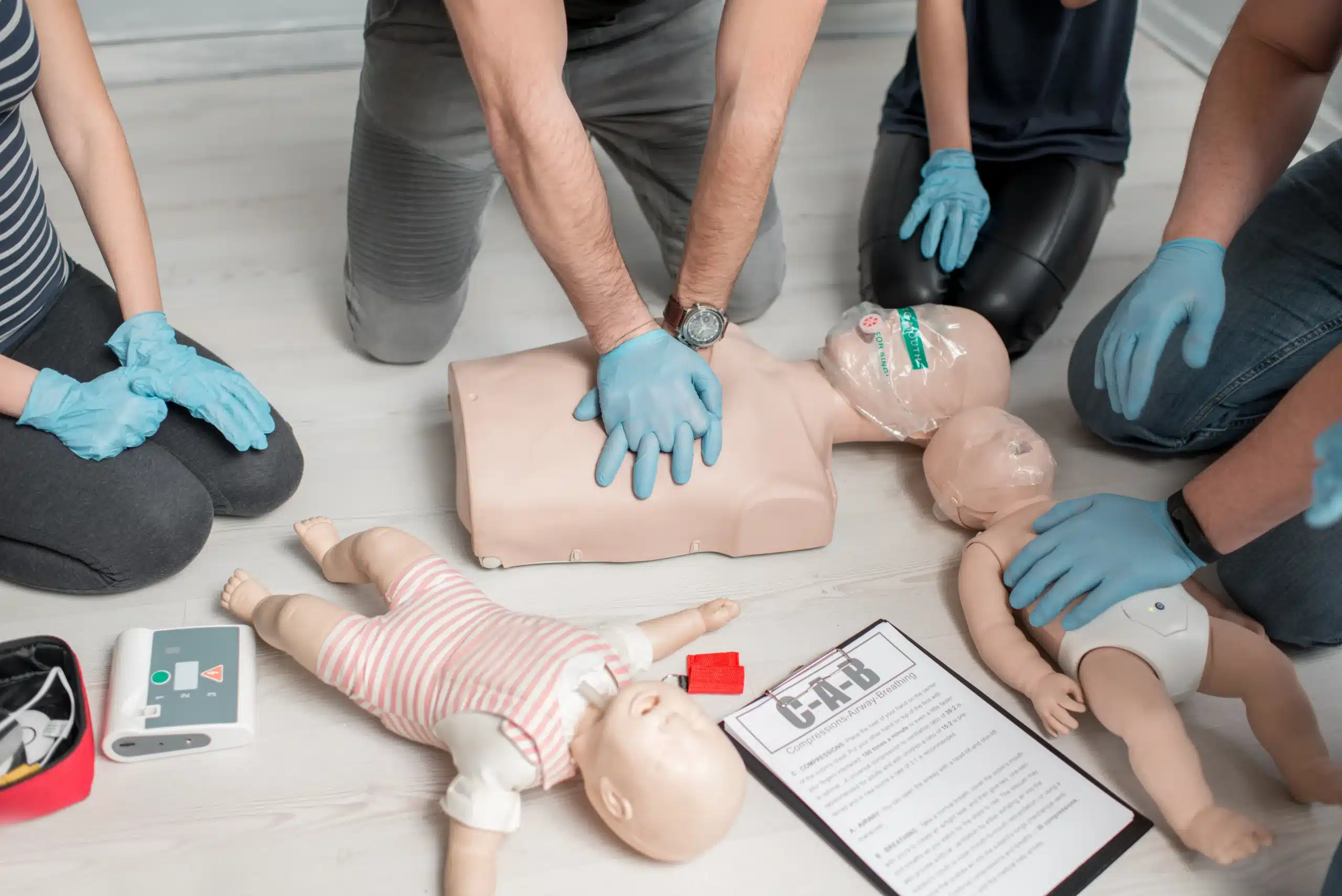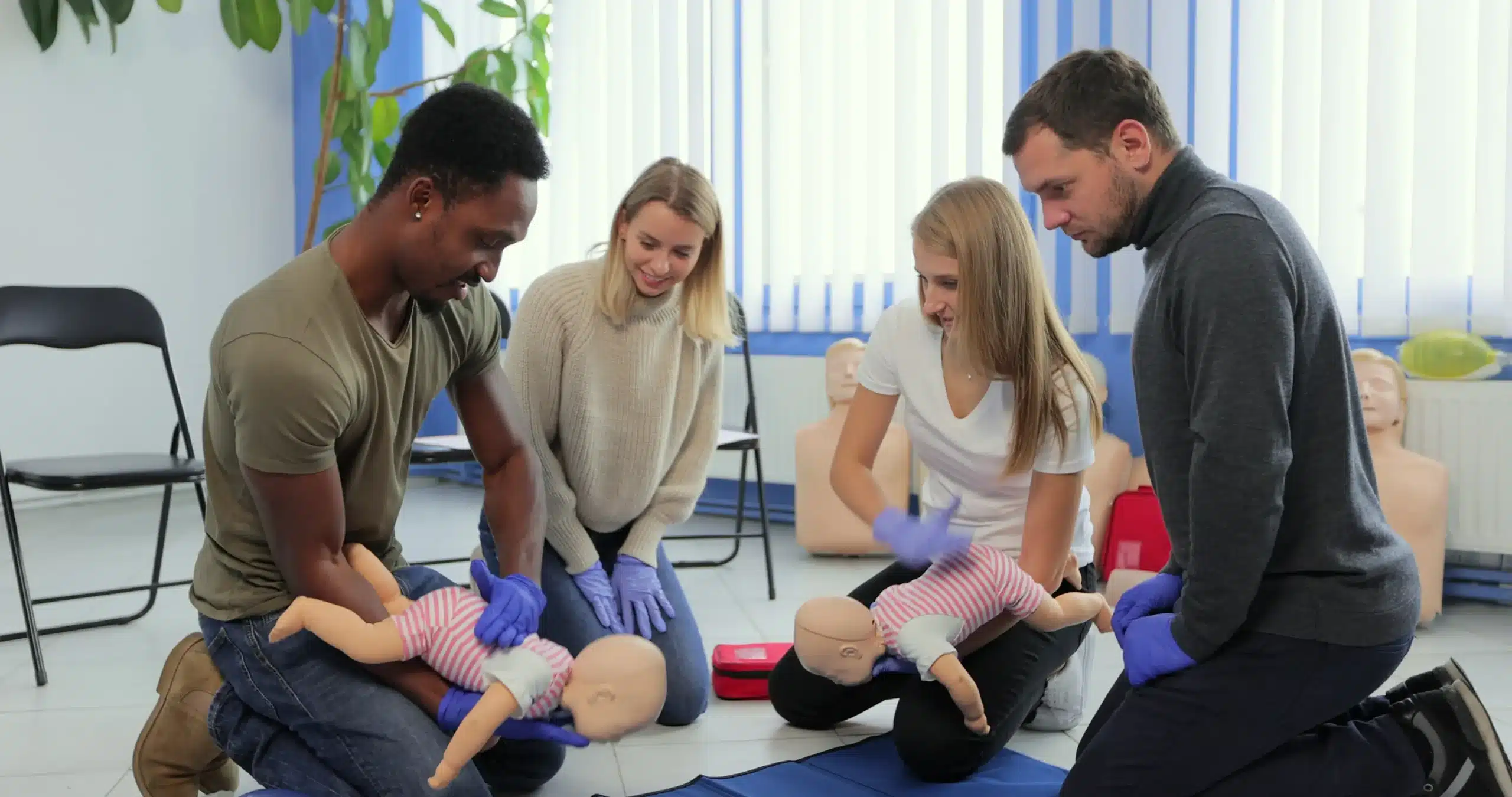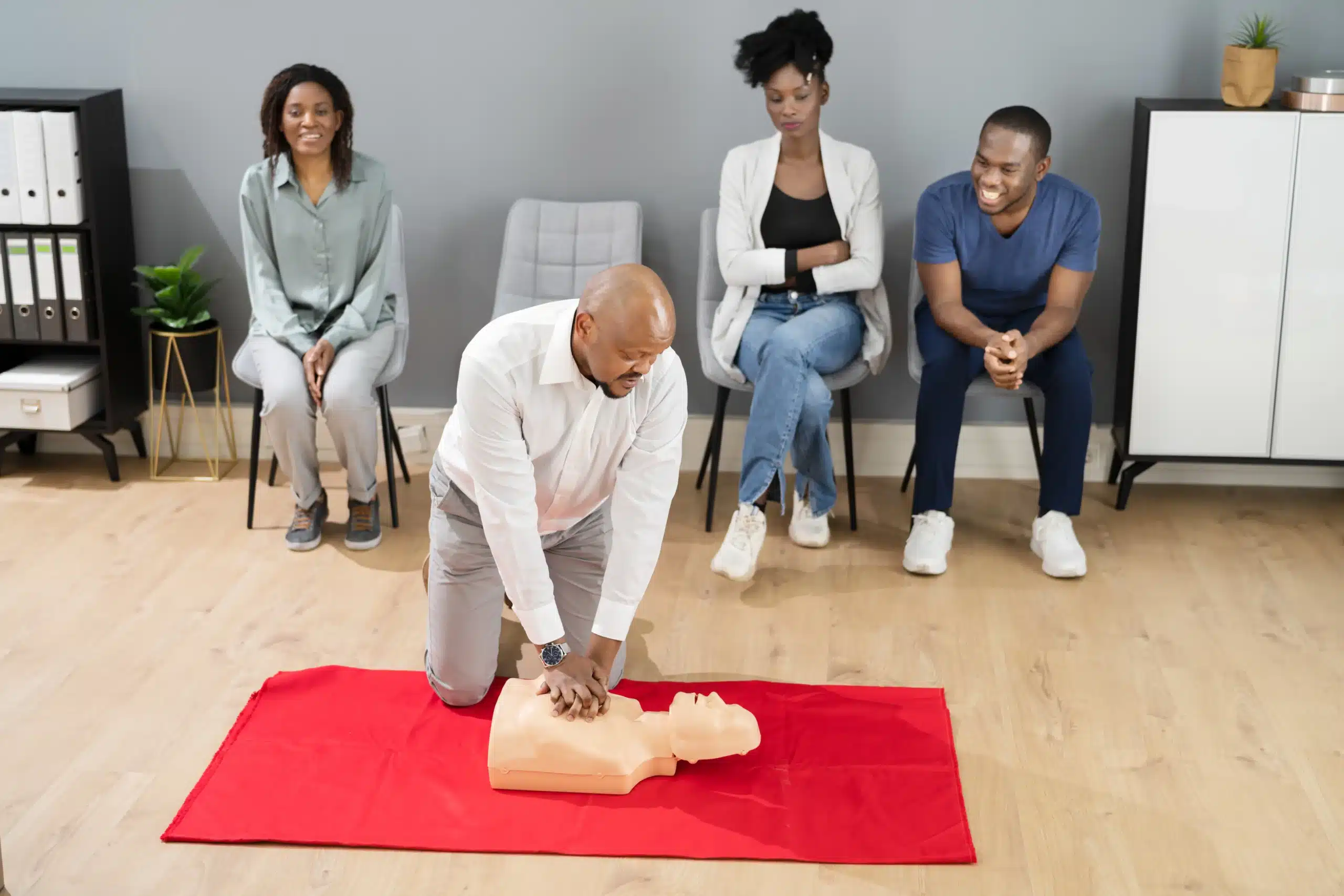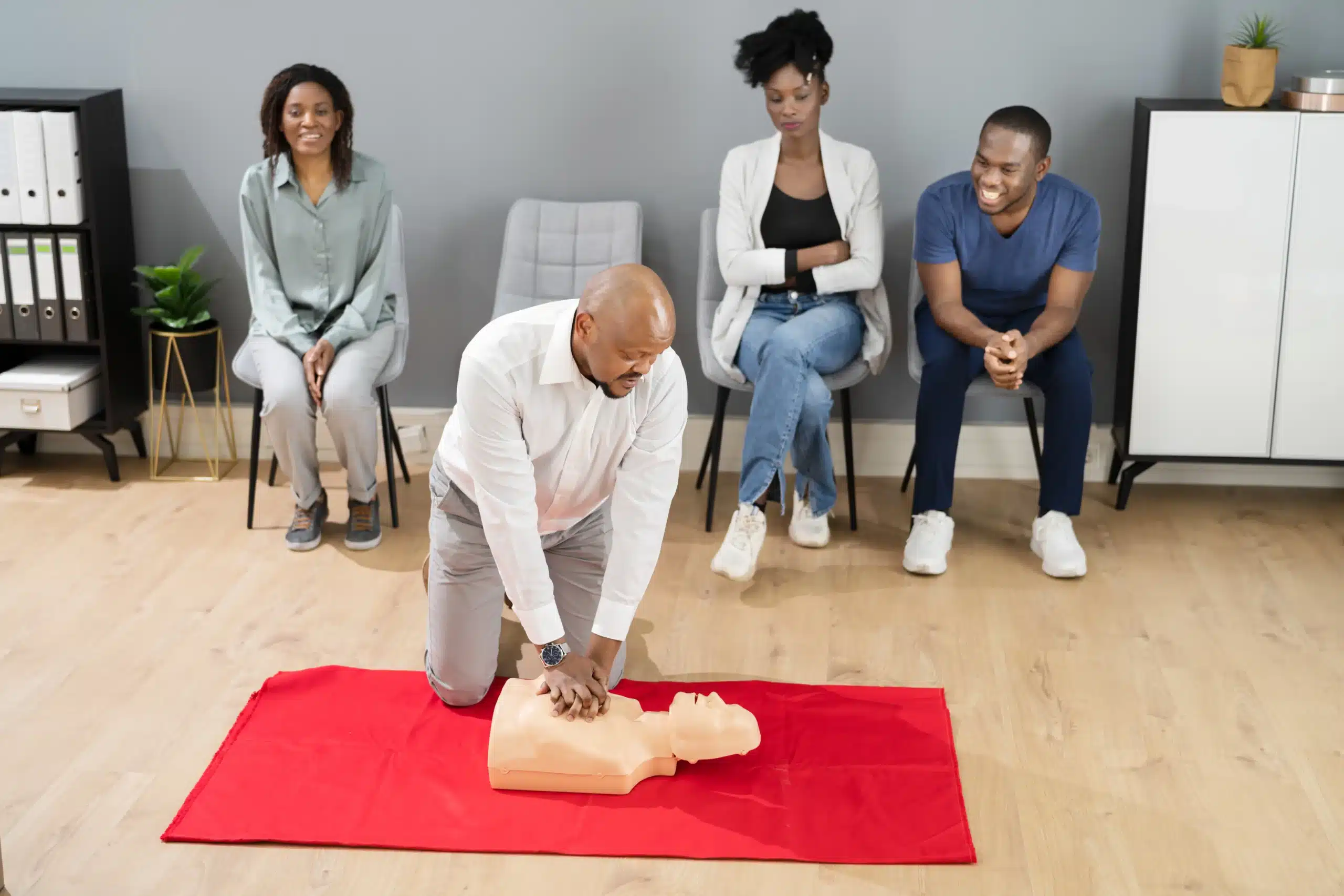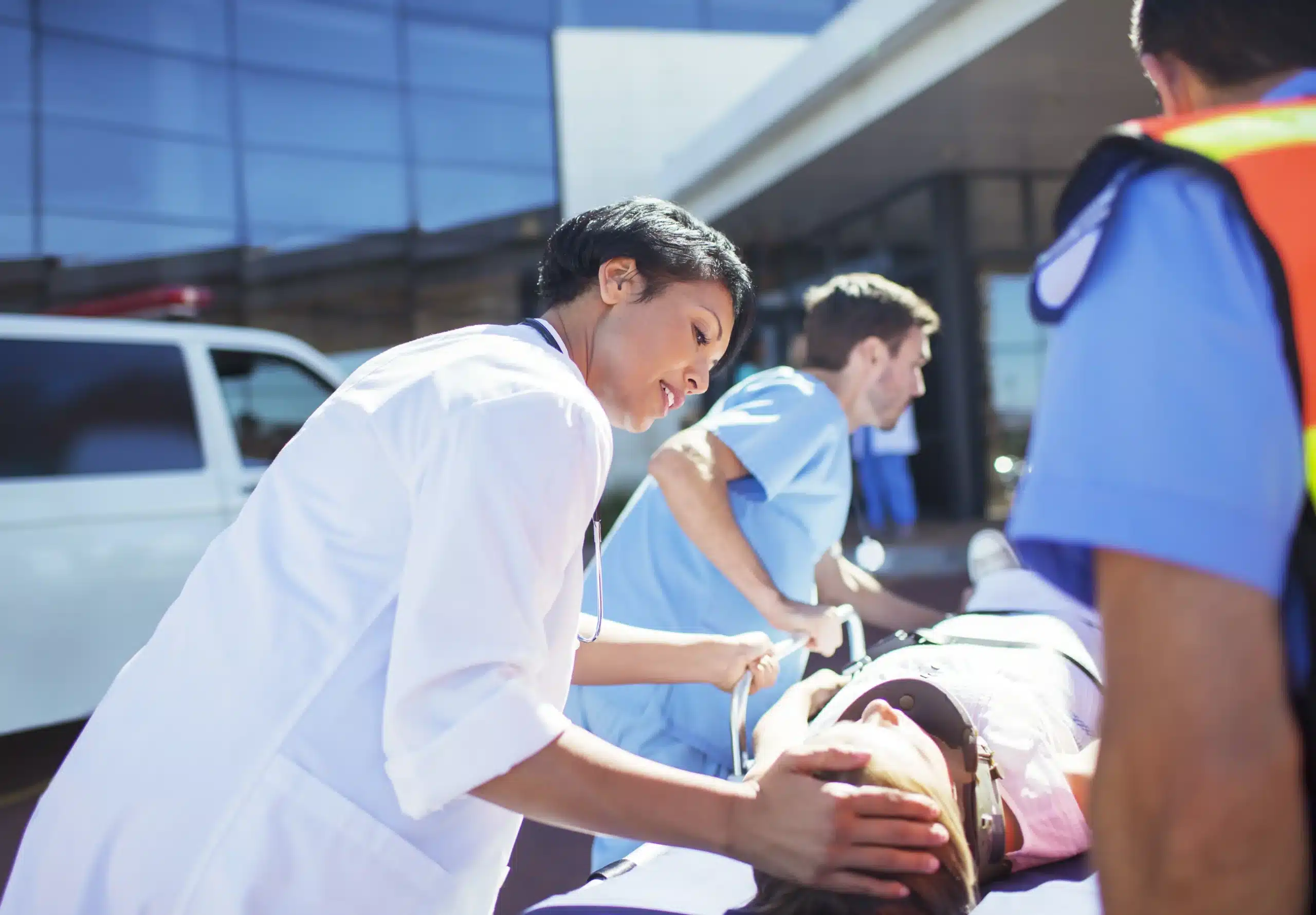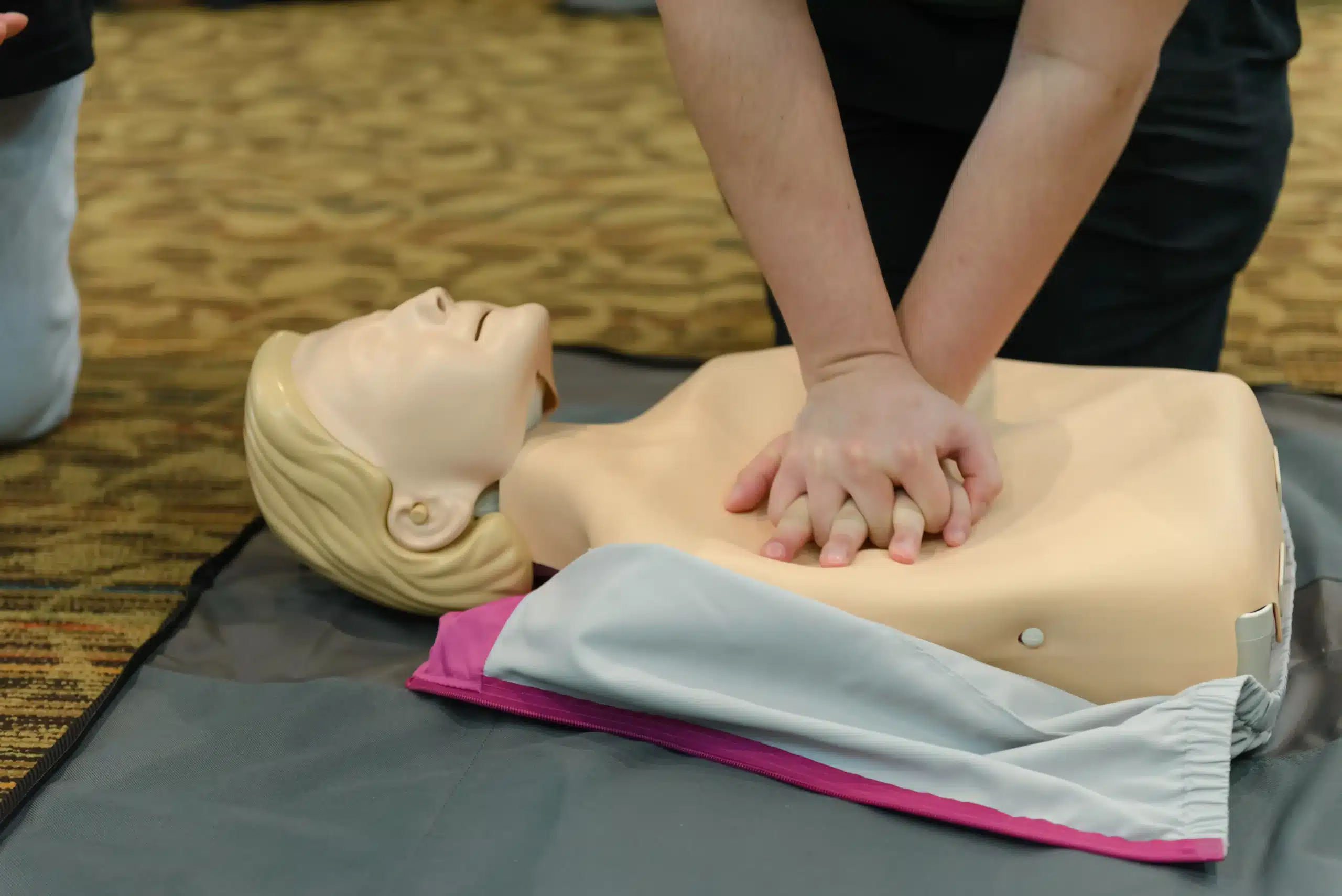CPR skills are like any other skill—they need regular refreshing to stay sharp. If you’re due for CPR renewal in SF, this guide is your go-to resource. We’ll break down the process, explore different learning options, discuss costs, and address common concerns. Whether you’re a seasoned healthcare provider or new to CPR, we’ll provide you with the information you need to choose the right renewal course and maintain your confidence in responding to emergencies. Let’s get started and ensure you’re ready to provide critical care when it matters most.
Key Takeaways
- CPR renewal keeps your skills current: Regularly refreshing your training ensures you can perform CPR confidently and correctly, incorporating the latest guidelines and techniques for better outcomes.
- Finding the right course is simple: Explore options like in-person, online, or blended learning to match your schedule and learning style. Consider factors like cost, location, and provider reputation when making your choice.
- CPR certification benefits everyone: Equipping yourself with these life-saving skills makes you a valuable asset in your community, ready to respond effectively in emergencies.
What is CPR Renewal in San Francisco?
CPR renewal in San Francisco is how you maintain your life-saving skills. Just like any important skill, CPR requires a refresher to stay sharp and up-to-date. Renewal courses cover the same core content as initial CPR certification courses, but are often streamlined. They focus on refreshing essential techniques and covering any updated protocols from the American Heart Association. Think of it as a tune-up to ensure you’re ready to respond confidently in an emergency.
Why Renew Your CPR Certification?
Renewing your CPR certification is crucial for several reasons. First, it keeps your skills fresh. We all know how quickly skills can diminish without regular practice. Renewal ensures you can perform CPR confidently and correctly under pressure. Second, guidelines and best practices for CPR can change. Renewal courses incorporate these updates, giving you the most current and effective life-saving techniques. This can significantly increase the chances of a positive outcome in a real emergency. Finally, maintaining a current certification demonstrates your commitment to providing high-quality care, which is essential for many professional fields.
Benefits of CPR Renewal Classes
CPR renewal classes offer several practical advantages. They’re designed to be efficient, providing a condensed refresher on the most critical aspects of CPR. This makes them perfect for busy professionals who need to maintain their certification without a huge time commitment. Plus, these classes offer a supportive environment to practice your skills and ask questions, reinforcing your confidence and competence. Many CPR renewal classes also offer flexible scheduling options, including weekend and evening courses, making it easier to fit into your busy life.
Common CPR Renewal Misconceptions
One common misconception is that only medical professionals need CPR certification. The truth is, anyone can benefit from learning CPR. From parents and teachers to coaches and caregivers, having these skills can make a real difference in any community. Another misconception is that you need to be certified to perform CPR in an emergency. While a CPR certification course ensures you’re properly trained, remember that providing some assistance is always better than doing nothing if you encounter a situation where CPR is needed. Don’t let these misconceptions hold you back from gaining these invaluable life-saving skills.
Top CPR Renewal Class Providers in SF
Finding the right CPR renewal class can feel overwhelming with so many options. To simplify your search, we’ve compiled a list of reputable providers in San Francisco, highlighting what each offers. This list will help you find a course that fits your schedule, learning style, and budget.
Bay Area CPR
Bay Area CPR offers BLS renewal courses that follow the latest American Heart Association (AHA) guidelines. They focus on providing accessible training, with BLS renewal courses in San Francisco typically ranging from $50 to $150. Their flexible scheduling and various locations throughout the Bay Area make it convenient for busy professionals and residents.
American Red Cross
The American Red Cross is a trusted name in emergency preparedness, offering a variety of CPR and First Aid certification courses in San Francisco. Known for their comprehensive approach, they provide a solid foundation in life-saving techniques. Check their website for course schedules and locations.
Revive CPR
Revive CPR offers American Heart Association (AHA) certified CPR, BLS, and First Aid classes in San Francisco. Their instructor-led and hands-on classes provide students with practical experience. They offer weekday and weekend options to accommodate different schedules.
Safety Training Seminars
Safety Training Seminars offers comprehensive CPR renewal courses in San Francisco. Recognizing that CPR renewal costs can vary, they aim to provide transparent pricing based on the course type (BLS, ACLS, PALS, etc.) and the format (online, blended, or in-person).
American Heart Association
While the American Heart Association sets the guidelines for CPR, they don’t directly offer classes. However, they are an excellent resource for finding certified training centers and understanding the latest CPR guidelines. Both online and in-person CPR renewal courses cover the same life-saving techniques and adhere to these established guidelines. Use their website to locate approved providers in your area.
Choose the Right CPR Renewal Format
Renewing your CPR certification involves a few choices. Understanding the differences between in-person, online, and blended learning can help you pick the best fit for your schedule and learning style. Each format covers the same life-saving techniques and meets the American Heart Association guidelines, so no matter which you choose, you’ll gain the skills you need. Consider these options when deciding how to renew your CPR certification.
In-Person Classes: Hands-On Learning
In-person CPR renewal classes offer hands-on learning and direct instructor feedback. This format is ideal if you thrive in a traditional classroom setting and value face-to-face interaction. In-person training lets you practice techniques on mannequins and ask questions in real-time, building your confidence. The structured environment can also help you stay focused. If you learn best by doing and appreciate personalized guidance, an in-person class might be your best bet.
Online Renewal: Flexibility and Convenience
Online CPR renewal courses offer flexibility and convenience. You can renew your certification from anywhere with an internet connection, fitting the coursework around your schedule. Online renewal is a solid choice for those who prefer self-paced learning or have limited time for in-person classes. While you won’t have the same level of in-person interaction, many online courses use videos and interactive simulations to reinforce learning. This format allows you to review the material as needed and test your knowledge through online assessments.
Blended Learning: The Best of Both Worlds
Blended learning combines online and in-person training. These hybrid courses typically involve completing online coursework followed by a shorter, hands-on skills session with an instructor. This format offers a balance of flexibility and personalized instruction. You can learn the material at your own pace online and then refine your practical skills with expert guidance. Blended learning is a smart option if you want some flexibility but also value the benefits of in-person practice and feedback.
CPR Renewal Class Costs & Value
CPR renewal is an investment in your skills and the well-being of your community. Understanding associated costs helps you budget effectively and choose the best option for your needs. Let’s break down the typical expenses and explore the factors influencing CPR renewal class pricing in San Francisco.
Average Pricing & Expectations
CPR renewal courses in San Francisco typically range from $50 to $150, making this essential training accessible. You’ll find various providers offering competitive rates, so research can help you find a course that fits your budget. This cost covers valuable instruction, updated materials, and the certification you need to respond confidently in emergencies. Bay Area CPR offers more information on local providers and pricing.
Group Discounts & Promotions
If you’re renewing with colleagues or friends, look into group discounts. Many providers, like Revive CPR, offer discounted rates for groups—sometimes up to 30% off. This can be a great way to save money while learning alongside others. Also, keep an eye out for promotional offers. Some providers run seasonal specials or discounts for early registration.
Factors Affecting Cost
Several factors influence the final cost of your CPR renewal course. The type of course you need (BLS, ACLS, PALS, etc.) plays a significant role, as advanced certifications often have a slightly higher price tag. The class format—online, blended, or in-person—also affects the cost. In-person classes, while offering hands-on practice, might be priced differently than online or blended learning options. Your chosen provider will also have its own pricing structure. Resources like San Francisco CPR offer helpful guides outlining these factors and how they impact overall cost. Understanding these variables helps you make informed decisions about your training.
The CPR Renewal Process
How Long is CPR Certification Valid?
CPR certification generally lasts for two years. This timeframe is standard because research shows CPR skills and knowledge can decline over time. Staying current with the latest guidelines and techniques is crucial for providing effective care during emergencies. Regularly renewing your CPR certification ensures you’re prepared to respond confidently and effectively.
Steps to Renew
Renewing your CPR certification is straightforward. First, find a certified CPR training provider, such as Bay Area CPR. We offer various courses, including BLS, ACLS, and PALS, all certified by the American Heart Association. Once you’ve chosen a provider and course, register for a renewal class that fits your schedule. These courses cover essential skills and the most current CPR guidelines. After completing the CPR training, you’ll receive an updated certification card, valid for another two years.
Requirements & Prerequisites
The main prerequisite for CPR renewal is a current (or recently expired) CPR certification. You’ll need to provide proof of your previous certification when registering for a renewal course. This ensures you’re building upon existing knowledge and skills. Bay Area CPR offers a variety of convenient in-person renewal options throughout the Bay Area, including San Francisco, Daly City, San Mateo, and Oakland. Check our website for available courses.
Handling Expired Certifications
It’s best to renew your CPR certification before it expires. Aim to complete your renewal course within the two-year timeframe. If your certification expires, you might need to take a full recertification course rather than a shorter renewal course. Check with your chosen provider, such as Bay Area CPR, for their specific policy on handling expired certifications. Often, there’s a grace period, sometimes up to 30 days, during which you can still take a renewal course. However, if your certification has been expired for longer than that, a full recertification course will likely be required to ensure you’re fully up-to-date with the latest CPR practices.
Overcome CPR Renewal Challenges
Let’s be honest: renewing your CPR certification might feel like one more thing on your to-do list. But staying current with your CPR skills is crucial, especially if you work in healthcare, childcare, or any field where you might need to respond to emergencies. Here’s how to make the recertification process smoother:
Manage Time Constraints
Juggling work, family, and other commitments makes finding time for anything extra tricky. Luckily, CPR renewal courses are streamlined and efficient, focusing on core skills and updates so you can refresh your knowledge quickly. Many providers, including Bay Area CPR, offer flexible scheduling options, including weekend and evening classes, to fit your busy schedule.
Stay Updated on Changing Guidelines
CPR techniques and best practices evolve based on the latest research. Renewal courses ensure you’re up-to-date with current American Heart Association guidelines. This means you’ll be equipped to provide the most effective care in an emergency. Staying current also helps you feel more confident in your abilities. Knowing you’re using the best techniques can make a real difference in a stressful situation.
Address Anxiety & Stress
Some people feel anxious about performing CPR, worrying about doing it wrong or causing harm. It’s completely normal to feel this way. A good CPR renewal course will address these concerns, providing a supportive environment to practice and ask questions. Hands-on training with experienced instructors can build your confidence and reduce hesitation in a real emergency. You can find resources and articles that address common CPR anxieties online.
Practical Renewal Tips
Here are a few simple tips to make your CPR renewal even easier:
- Plan ahead: Don’t wait until the last minute. Check your certification’s expiration date and schedule your renewal course in advance. This avoids last-minute scrambling and ensures you’re always prepared.
- Choose the right format: Consider whether an in-person class, an online renewal, or a blended learning approach works best for your learning style and schedule.
- Ask about group discounts: If you’re renewing with colleagues or friends, inquire about group discounts to save on costs. Many providers offer special rates for group bookings.
Frequently Asked Questions
How often do I need to renew my CPR certification? CPR certifications are typically valid for two years. It’s recommended to renew within this timeframe to maintain your skills and stay updated on the latest guidelines.
What’s the difference between CPR renewal and recertification? Renewal courses are shorter, refresher courses for those with a current or recently expired certification. Recertification courses are more comprehensive and designed for those whose certifications have been expired for a longer period.
What if my CPR certification has already expired? While it’s best to renew before expiration, many providers offer a grace period. If your certification is only slightly past due, you might still be eligible for a renewal course. If it’s been expired for longer, you’ll likely need to take a full recertification course. Contact your chosen provider to determine the best course of action.
Are online CPR renewal courses as good as in-person classes? Both online and in-person renewal courses meet the same American Heart Association guidelines. Online courses offer flexibility, while in-person classes provide hands-on practice and direct instructor feedback. Blended learning combines the benefits of both. The best format depends on your learning style and schedule.
How much does CPR renewal cost in San Francisco? CPR renewal courses in San Francisco typically range from $50 to $150. The cost can vary based on the course type (BLS, ACLS, PALS), the format (online, blended, in-person), and the specific provider. Look for group discounts or promotional offers to potentially save on costs.

